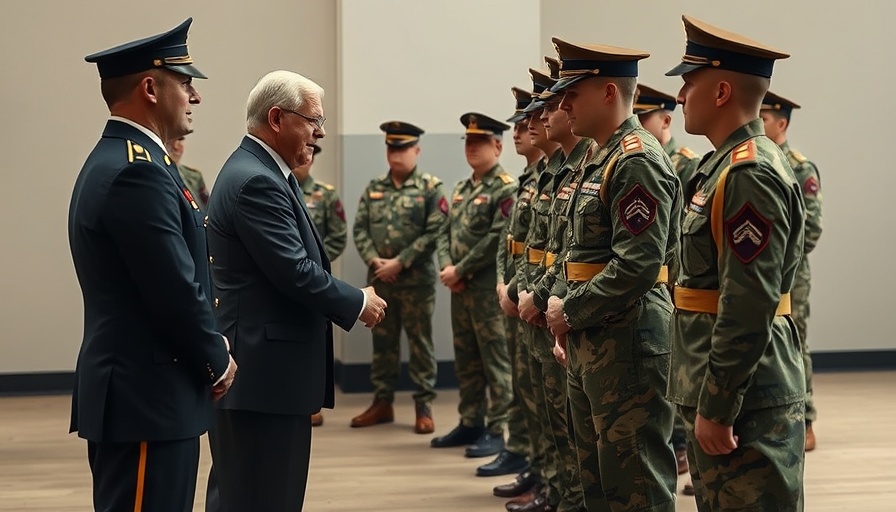
Understanding the Role of the National Guard
The National Guard serves a dual purpose in the United States, providing community support as well as federal military support during domestic emergencies. This unique positioning allows state governors significant authority; however, federal intervention often complicates this dynamic. Under President Donald Trump’s recent decision to deploy over 4,000 National Guard members and hundreds of marines in response to protests against deportation operations in Los Angeles, a complex national discussion on military deployment authority is reignited.
Challenges to Civil-Military Relations
Governor Gavin Newsom’s legal challenges against the deployment highlight the conflict that can arise when federal interests intersect with state governance. By suing to block what he calls an "illegal deployment," Newsom underscores a growing worry that military forces may be misused against American citizens. This incident raises significant questions about the power dynamics in American governance and the safeguarding of civil liberties.
Historical Context: Military and Law Enforcement
The use of military forces for law enforcement is heavily regulated, primarily to prevent the military from acting as a police force. Under the Insurrection Act of 1807, a president can summon National Guard units in times of unrest or insurrection. However, Trump did not invoke this act when ordering the deployment, raising questions about the legal basis for such an action. This precedent-breaking move not only affects Los Angeles but could set troublesome precedents for future federal engagements.
Public Reaction and Legal Implications
With social media and news platforms alive with discussions surrounding the deployment, public sentiment is mixed. Many residents fear increasing militarization of police forces, thus diminishing public trust. In contrast, others argue that swift action is necessary to maintain order. Such polarized opinions leave local and national leaders grappling with complex implications for community safety and human rights.
Future Predictions: Military as Community Support?
The ongoing tension between military involvement and civil liberties branches out into broader predictions about the future of military and civilian law enforcement relations. As tensions rise across the nation regarding issues from immigration to police reform, similar deployments could become more prevalent, forcing a reevaluation of laws governing military domestic use. If unchecked, the normalization of military presence in civilian contexts may further erode the line between the roles of a citizen-focused police force and the military.
Decisions We Can Make As Citizens
This situation compels citizens to consider their roles in shaping the legal and ethical framework of military use in communities. Advocacy for better laws, engaging with local representatives, and fostering conversations about civil liberties can all contribute to ensuring that national security does not supersede individual rights. Citizens have the power to influence their leaders' decisions through awareness and activism.
Ultimately, as the dialogue around Trump’s deployment of the National Guard continues, it serves as an imperative reminder to remain vigilant about the edges of military authority in civil contexts. The implications stretch beyond this situation, impacting the very essence of democracy and the relationship between the government and the governed.
 Add Element
Add Element  Add Row
Add Row 



 Add Row
Add Row  Add
Add 


Write A Comment